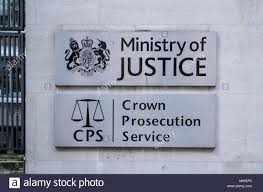By Lucy Caulkett
The Crown Prosecution Service Inspectorate (HMCPSI) has blamed the police for the fall in rape prosecutions, pointing to police delays and failure to submit cases with sufficient evidence resulted in many cases being dropped or ‘administratively finalised’, which means they are returned for further investigation.
This examination in the report looks at one small part of the overall picture, examining the extent to which the Crown Prosecution Service (CPS) is part of the problem. It examines whether the CPS has changed the test it applies when deciding whether to prosecute? ”Is the CPS demanding unnecessary further investigations be carried out before being prepared to reach a decision? Is the CPS risk averse?”, the report asks. The three questions are connected
The examination has been sparked because of the shocking statistics that suggests many rapists may be escaping prosecution because of the test applied by the CPS.The inspection came about at the Attorney General’s request for
independent evidence to support a review, commissioned by the National Criminal Justice Board (NCJB), of the criminal justice system’s response to adult rape and serious sexual offences.
This NCJB review was commissioned because of concern that while the number of rape allegations being reported to the police was increasing, there was a clear fall in the volume of police referrals to the Crown Prosecution Service (CPS) . The further decrease in the number of charges of, and prosecutions and convictions for, rape has raised more alarm among concerned parties.
CONCERN/COMPLEXITIES
The fact that just 1, 925 successful prosecutions out of a staggering 58,657 allegations of rape were made in the year ending March 2019, is cause for concern. It highlights the complexities that often attend to a rape case, especially where the complainant and the suspect may
know each other. It points out that relationship in which consensual sexual activity has previously taken place can quickly turn to one where consent is withdrawn. In addition to that, the CPS applies the test for prosecution set out in the Code for Crown Prosecutors when deciding whether or not to prosecute.
That is ,whether on the basis of the totality of the admissible evidence, there is a realistic prospect of conviction and, if there is, whether a prosecution is in the public interest . The Centre for Women’s Justice has brought a judicial review against the CPS, claiming that a change in its policy on charging has contributed to huge declines in numbers of rape cases prosecuted and convicted. The CPS has consistently denied any change, but last month the Gazette revealed that the CPS had imposed a rape conviction rate target in 2016, which it dropped after two years after deciding it was ‘not appropriate’.
Today’s 195-page report from HMCPSI supports the CPS position, finding that prosecutors correctly observed the Code for Crown Prosecutors in all but 2% of cases sampled – an improvement on a 2016 inspection which found the code had been wrongly applied in 10% of cases. There was no evidence that the CPS had become more risk-averse, that it had dropped too many cases or that decision-making had been influenced by conviction rate targets, the report added.
HM chief inspector Kevin McGinty said: ‘Since 2016 there has been a substantial increase in rape allegations, while the number of rape prosecutions has fallen significantly – which indicates there is a serious problem. The CPS has been accused of only choosing easy cases to prosecute, but we found no evidence of that in our report.’ The report criticises prosecutors for requesting disclosure of large amounts of personal information from both complainants and suspects which was not necessary for the investigation, including full downloads from phones and material from third parties such as schools or doctors.
It also highlights under-resourcing of both the CPS and the police. ‘[The criminal justice system] has been under-resourced so that it is close to breaking point,’ the report states. ‘The number of rape allegations lost in the investigative process is damning.’
Max Hill QC, the director of public prosecutions, welcomed the report as a ‘vote of confidence’ in the CPS’s professionalism and decision making. ‘I share the deep public concern over the growing gap between the number of rapes being reported, and the number of criminals being convicted of this sickening offence,’ he said. ‘It is right that the CPS is open to independent scrutiny to be sure that we are doing everything possible to bring offenders to justice.’ However some women’s organisations have expressed unhappiness at the report’s findings.
DISAPPOINTING
Sarah Green, director of the End Violence Against Women Coalition, called it ‘profoundly disappointing’.
‘The report appears to leave many questions at the police front door, even though the government’s own analysis earlier this year found clearly that the numbers of rape cases arriving at the CPS and going through to charge and prosecution have declined at a faster rate than the decline in referrals from the police to CPS,’ she said.
Centre for Women’s Justice director Harriet Wistrich said the report was ‘altogether a wasted opportunity to shine a light on this crisis’.
‘We are inundated with examples of compelling cases of rape prosecutions being dropped by the CPS or by the police who say there is no point in referring consent cases to the CPS any more,’ she said.

